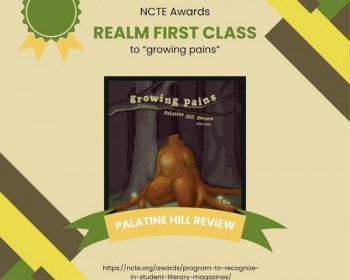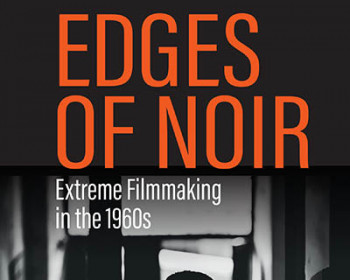Literature & Law: An Interview with Andrea Hibbard
Open gallery

Interested in continuing to the Lewis & Clark Law School? In this interview, English assistant professor, Andrea Hibbard, speaks on the connection between literature and law. While an English degree isn’t the only degree that provides good preparation for law, Hibbard discusses how it provides an excellent foundation of critical reading and writing skills. Additionally, Hibbard provides a few CAS classes that she believes may help introduce students to law as well as a couple extracurricular activities that could prepare students for law. Most importantly, if you are considering attending the L&C law school, Hibbard believes that “students should be guided by their own intellectual passions.” For Hibbard, Victorian Literature ignited her passion for the study of law, pushing her to write articles and currently a book about the influence of literature on law. If you have a niche interest like Hibbard, the Lewis & Clark Law School may be a great option for you to further explore the application of it.
What majors provide good preparation for Law School?
Any major can be good preparation for law school. Students should be guided by their own intellectual passions. That said, I recommend that students interested in law school take classes that allow them to hone their critical reading and writing skills–English, History, Philosophy, Political Science, International Affairs, and Rhetoric and Media Studies all come to mind. Our law school is consistently ranked first or second in the nation in environmental law, so Environmental Studies would also be an excellent choice for students interested in staying at Lewis & Clark for the JD.
You are in the English Department. What kind of literature do you teach?
My area of expertise is Victorian literature, but I also teach classes on adventure narratives, women writers, gender and aesthetic expression, and law and literature.
Are there any extracurricular activities I can do at LC if I’m interested in the law?
Consider getting involved in our Speech and Debate Team, Mock Trial, Student Senate, Prelaw Club, or annual symposia in Ethnic Studies, Gender Studies, International Affairs, and Environmental Affairs.
Can I take classes at LC’s Law School while an undergraduate?
Undergraduates can take a small number of classes offered by the law school for CAS credit. More importantly, there are many CAS classes that will prepare them for law school and give them a preview of what to expect once they get there. I recommend classes in U.S. history, political science, philosophy, and English. Here are a few courses offered this spring that might be useful for students planning to attend law school: American Legal and Constitutional History (HIST 397), Immigration and Asylum Law (HIST 390), American Constitutional Law (POLS 305), International Law (IA 333), and Logic (PHIL 101).
How did you get interested in the study of law?
Believe it or not, studying sensation novels from the 1860s inspired my interest in law. These wildly popular novels catered to a Victorian fascination with dangerous women, crime reporting, detectives, and courtroom dramas. Often, they fictionalized real trials.
I understand why studying literature can help in interpreting law, but do you ever find that studying the law can enrich your appreciation of literature?
Last year, I published an article on late-Victorian adventure novels. I argued that approaching these novels by way of the 1884 cannibalism case of Dudley and Stephens brings their Gothic subtext into clearer focus. Legal scholars consider the case the source of the necessity defense. I used Dudley and Stephens to trace larger cultural narratives about the form and fortunes of a hegemonic, late-Victorian imperial masculinity. Although the novels and the case may seem at times to confound the categories of English hero and cannibal Other, I showed how the law and the literature worked together to reinforce such distinctions in and for a world where they were breaking down.
Do you have a favorite court case or legal code?
I’m working on a book about gender, genre, and sensational nineteenth-century court cases. Recently, I’ve been researching the Clitheroe Abduction case about an English woman named Emily Jackson, who was kidnapped in 1891 by her estranged husband, Haughton Jackson. The trial court rejected Emily’s application for habeas corpus, upholding Haughton’s common-law right to custody of his wife; meanwhile, crowds staked out the Haughton’s home, an armed guard stood watch at the doors, and the press issued updates about Emily. The appeals court eventually overturned the decision, and what fascinates me about the case was how it became a focal point for debates about the social and economic forces that constrained women to marry as well as the many ways the law subordinated Victorian women to their husbands. On the one hand, the case offered observers the chance to tut-tut over the feminine folly of Emily or the masculine villainy of Haughton, and the result was a reassertion of a conservative morality about gender roles and family values. On the other hand, though, the dramatic details of the case gave the lie to conventional wisdom about marriage. In this way, writing about Emily and Haughton forced Victorian platitudes about marriage into the open and created the conceptual space for dissent. Moreover, since the case was a true story, it exerted not only an emotional claim on readers but an immediate and practical one, too. Feminist legal historians have characterized the case as a landmark in the emancipation of Victorian women.
English is located in Miller Center on the Undergraduate Campus.
MSC: 58
email english@lclark.edu
voice 503-768-7405
fax 503-768-7418
Chair Kristin Fujie
Administrative Coordinator Amy Baskin
English
Lewis & Clark
615 S. Palatine Hill Road MSC 58
Portland OR 97219

